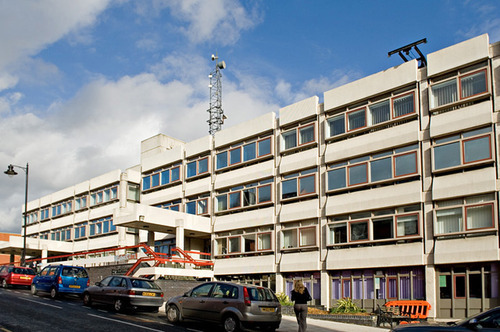
Post: 11 July 2014
There are various ways to judge the extent to which local authorities have engaged with the open data agenda. One of these is to look at whether a council is delivering the bare minimum required by Government.
In England that bare minimum is the publication of spending data, i.e. payments to suppliers, for reuse under an open licence.
I would certainly not argue that spending data is the most important dataset held by local authorities. However it was an early priority for the current Government. Spending data was the top bullet point for local government in the Prime Minister’s “transparency” letter of May 2010. It was also central to the Code of Recommended Practice issued by DCLG in 2011. (If all goes to plan an enhanced version of that code will shortly be mandatory for English councils.)
At this point, several years into the current Government’s programme, it is unsurprising to find that nearly all councils in England – 349 out of 353 – do publish and maintain an archive of their spending data online. (Spending data is also collected and analysed on a number of third party sites.)
This provides us with a useful baseline for identifying those councils most resistant to the open data agenda. Based on this one metric, these are the four “least transparent” councils:

4. Enfield London Borough Council
Enfield does publish expenditures of £500 and above, in CSV format. However it only publishes the most recent month’s data.
3. Southwark London Borough Council
Southwark publishes spending over £250. However like Enfield it only publishes one month of data. The data is only available as a PDF file, and contains far less detail than the norm – just the vendor name and an amount.
2. Rother District Council
Rother does not publish its spending data online at all. Following is the explanation on the Council’s website:
Supplier expenditure data exceeding £500 has been removed from the Rother District Council web site on 18th November 2011.
For the foreseeable future spend data will not be published on this web site.
The removal of this data is to protect the Council and its Suppliers against fraudulent activities.
Requests for this information can be made via the normal Freedom of Information, (FOI) channels, with each request being given due attention under the rules and guidelines of this legislation.
(National Archives has captured some of the 2010 data files.)
1. Wigan Council
Wigan also does not publish its spending data online at all. This is the message on the Council’s website:
Information relating to our spend over £500 is available on request. Please email FOIrequest@wigan.gov.uk providing details of dates or any specific information you require.
Wigan edges out Rother as the “least transparent” council in England because, in addition to not publishing its spending data online, it also recently refused a Freedom of Information request for the missing data.
Wigan seems to have been motivated by the same vague concerns about fraud put forward by Rother. However the Information Commissioner was unconvinced and ordered the Council to release the data to the FOI requester:
“The Commissioner considers it extremely unlikely that the DCLG would issue recommendations which would expose local authorities throughout the country to potential fraud.”
Well done, Wigan Council.
Is the above unfair to the councils?
There are lots of ways we can measure the open data performance of a public authority, and I’ve simplified for the sake of brevity.
Open data and transparency are related but not the same thing. As far as transparency is concerned, a robust commitment to Freedom of Information is more important than open data. Councils can also demonstrate support for open data by publishing useful datasets that have nothing much to do with the transparency agenda.
However none of the above four councils seem to be doing anything special in the open data space to offset the poor impression created by their refusal to publish spending data properly. (Enfield and Rother have no dataset records in the Data.gov.uk catalogue. Wigan has one record; ironically, for the spending data that it no longer publishes. Southwark has a slew of records for geographic datasets, but none of them are open data.)
Photo credit: The Civil Centre in Wigan by Dave Green, CC BY-SA 2.0